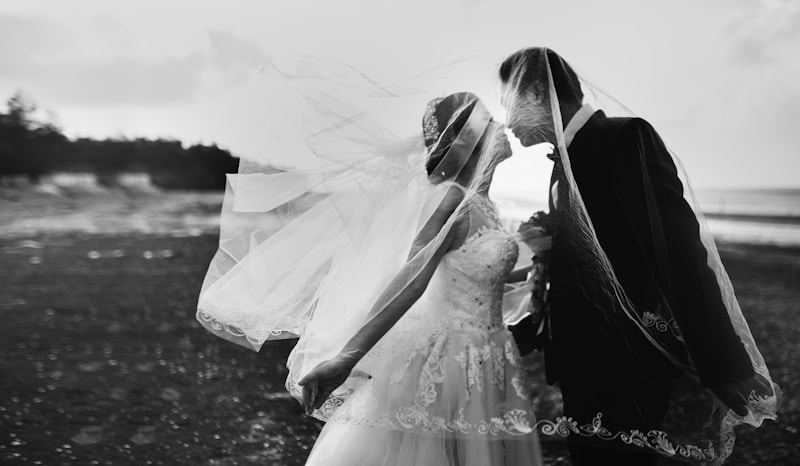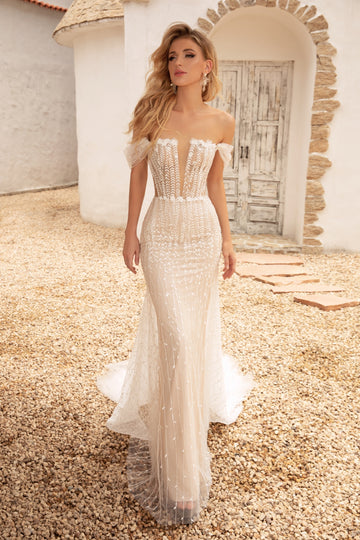Timeless Bridal Looks Throughout History: A Journey Through Elegance
Timeless Bridal Looks Throughout History: A Journey Through Elegance
Weddings are a celebration of love, commitment, and timeless traditions. One of the most significant aspects of weddings is the bridal look, which has evolved dramatically throughout history. From the flowing gowns of ancient civilizations to the modern-day minimalist styles, bridal fashion reflects cultural, social, and economic shifts. In this article, we explore timeless bridal looks throughout history and how they influence today’s wedding trends.
The Evolution of Bridal Fashion
Bridal fashion dates back thousands of years and varies significantly across cultures. Each era brought unique styles that not only express individual identity but also reflect societal norms. Below, we outline some key historical bridal looks:
| Time Period | Bridal Look | Notable Characteristics |
| Ancient Rome | Tunicas and Long Veils | Brides wore simple white tunics and long veils symbolizing modesty. |
| Middle Ages | Heavy Silks and Crowns | Extravagance with heavy fabrics, often adorned with crowns or jeweled headdresses. |
| Victorian Era | Elaborate Gowns | White became the color of choice, with intricate lacework and long trains. |
| 1920s and 30s | Flapper Style | Shorter hemlines, and simpler silhouettes that embodied the spirit of liberation. |
| Modern Era | Minimalism and Personal Style | Focus on individualized designs, sustainable fabrics, and inclusivity. |
Understanding these styles allows us to appreciate the rich tapestry of cultural influences that shape bridal fashion today.
Bridal Looks Across Cultures
The concept of a wedding dress is not restricted to Western cultures. Different countries have their unique bridal looks that are steeped in tradition:
Asian Bridal Trends
In many Asian cultures, brides often wear vibrant colors, such as red in Chinese weddings, symbolizing joy and prosperity. Traditional garments like the hanbok in Korea or the sari in India are exquisitely designed and represent cultural heritage.

African Bridal Styles
African brides exude elegance through colorful attire adorned with beads and intricate patterns. Traditional garments like the boubou in West Africa or the Xhosa bride’s regalia showcase the rich history and ceremonial significance.
Timeless Elements in Bridal Fashion
No matter the era or culture, certain elements have remained timeless and continue to influence bridal looks today:
The Color White
The choice of white as the color of marriage became popularized by Queen Victoria in the 19th century. Today, while white is still prevalent, other colors are also embraced, allowing for personal expression and creativity.
Silhouettes and Styles
Bridal silhouettes have varied but classic styles such as the A-line, ball gown, and mermaid are still in vogue. These cuts flatter diverse body types and provide brides with options to enhance their beauty.
Fabrics and Embellishments
Luxurious fabrics such as silk, taffeta, and chiffon, along with exquisite lace details and beadwork, continue to dominate bridal fashion. Modern designers increasingly focus on sustainable materials, making eco-friendly choices more appealing.
Fashion Icons and Their Impact
Many noteworthy figures have left their mark on bridal fashion throughout history:
Princess Diana
Her iconic wedding dress, designed by David and Elizabeth Emanuel in 1981, captured hearts with its voluminous sleeves and lace detailing. It is still regarded as one of the most famous wedding dresses of all time.
Kate Middleton
In 2011, the Duchess of Cambridge’s wedding dress designed by Sarah Burton for Alexander McQueen revitalized interest in classic bridal designs, combining modernity and tradition.
Today’s Trends: Blending Tradition with Modernity
Bridal fashion trends today blend traditional elements with modern aesthetics. Many brides opt for minimalistic designs, while others embrace bold colors and patterns. The rise of customization allows brides to tailor their dresses to fit their personal style and body shape.
Sustainable and Ethical Choices
Today’s brides are increasingly conscious of the environmental impact of their choices. This shift has led to the popularity of vintage gowns, rental services, and ethical designers, promoting sustainability in the bridal industry.
Inclusivity in Bridal Wear
Bridal fashion has become more inclusive, celebrating diversity in body shapes, sizes, and gender expressions. Designers are more aware of the need to cater to all brides, ensuring that everyone feels beautiful on their special day.
Conclusion: A Reflection on Timeless Bridal Looks
The timeless bridal looks throughout history offer a glimpse into cultural and social changes. From traditional garments to modern designs, the evolution of bridal fashion is a testament to personal expression and the beauty of love. Whether you lean toward the classic elegance of yesteryears or the contemporary vibes of today, your bridal look is ultimately about what makes you feel special.
As you plan your wedding, consider the elements that resonate with you personally. Reflect on the styles that have come before and choose aspects that make your day uniquely yours. Remember, the most beautiful bridal look is one that reflects your personality and the love you share.
Recommendations: When selecting your bridal attire, consider the following:
- Research historical styles that inspire you.
- Explore cultural influences and how they can reflect your heritage.
- Prioritize comfort and confidence in your choice of fabrics and design.
- Look into sustainable options if you wish to minimize your environmental impact.
- Embrace your own unique style, blending modern and traditional elements as desired.
With the right inspiration and considerations, your bridal look can embody the timeless elegance that resonates through history.
